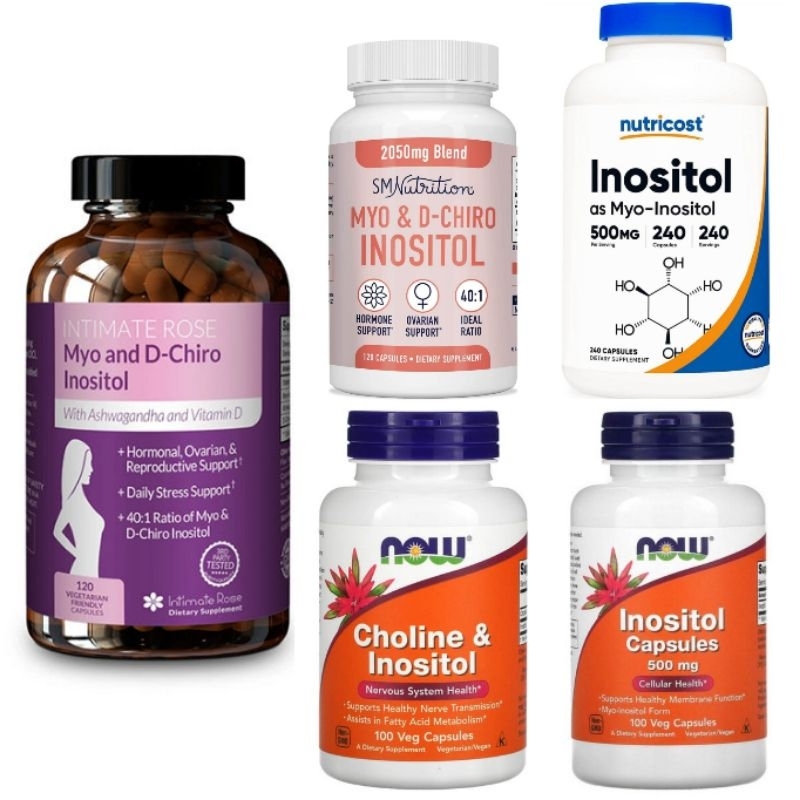Inositol, a carbohydrate often considered a member of the B-vitamin family, has garnered increasing attention in nutritional science, particularly regarding its role in weight loss. Through improving insulin sensitivity, regulating cravings, and supporting metabolic health, inositol supplementation may offer significant benefits for those struggling with weight management. This article explores inositol’s paradigm of weight loss, its mechanisms, the scientific evidence backing its use, and practical applications for those looking to enhance their health and wellbeing.

Understanding Inositol and Its Variants
Inositol exists in various forms, with myo-inositol and D-chiro-inositol being the most studied. Myo-inositol is recognized for its impact on insulin sensitivity, making it particularly beneficial for individuals with conditions like polycystic ovary syndrome (PCOS), where insulin resistance is prevalent. According to the Cleveland Clinic, “Inositol helps the body absorb, store, and metabolize glucose, aiding in insulin sensitivity and therefore aiding in weight loss.”
The Science of Inositol and Weight Loss
Numerous studies underscore inositol’s role in enhancing metabolic functions. A systematic review published in PMC concluded that oral inositol supplementation has positive effects on BMI reduction. In one study highlighted by Dr. Brighten, myo-inositol was shown to “improve the body’s use of fats and carbohydrates,” thereby affecting weight management.
How Inositol Affects Appetite and Cravings
One of the critical factors in weight loss is appetite regulation. Inositol appears to play a vital role in managing cravings, directly influencing eating behaviors. Acknowledged nutritionist Dr. Jolene Brighten states, “By improving hormonal balance and metabolic functions, inositol can help address issues like cravings and overeating, contributing to a healthier weight management process.”
Practical Applications: Inositol for Weight Loss
To effectively utilize inositol for weight management, consider these guidelines:
- Consult a Healthcare Provider: Before integrating inositol supplements into your regimen, it’s crucial to discuss it with a healthcare professional, especially if you have underlying medical conditions.
- Combine with Diet and Exercise: While inositol can support weight loss, it is most effective when combined with a balanced diet and regular physical activity. As reported in the Healthline, “Research shows that inositol is more effective for weight management when combined with dietary changes.”
- Timing of Supplementation: Studies suggest that taking inositol just before meals can enhance its absorption and effectiveness. This may stabilize blood sugar levels and control appetite throughout the day.
Inspirational Success Stories and Testimonials
Many women with PCOS have experienced significant results using inositol. A participant in a randomized study reported a weight loss of 30 pounds while taking myo-inositol, exemplifying the potential benefits for those facing weight management challenges. Users often share personal anecdotes of improved metabolic health and better management of their symptoms.
Expert Opinions on Inositol’s Efficacy
Nutritionists and health experts frequently advocate for inositol’s potential, recognizing its multifaceted role in weight management. “It’s about self-love and treating your body with respect,” Dr. Brighten emphasizes. “Using supplements like inositol should be about finding balance and empowering oneself on a health journey.”
Conclusion: Embracing a Holistic Approach
Inositol presents a promising avenue for those seeking to enhance their weight loss journey, particularly for individuals dealing with metabolic disorders like PCOS. While supplementation can be a powerful tool, the foundation of sustainable weight management lies in a holistic approach that includes nutritious eating, physical activity, and mental wellness. Empower yourself to pursue a balanced lifestyle where health is viewed not merely as a number on a scale, but as a celebration of self-love and care.
FAQ About Inositol and Weight Loss
Can inositol help lose weight?
Yes, inositol can aid in weight loss, particularly by improving insulin sensitivity and regulating appetite, making it easier to maintain a healthy weight.
Why am I gaining weight on inositol?
There’s no direct evidence linking inositol to weight gain; however, some individuals may experience fluctuations based on lifestyle or other factors. It’s important to examine overall dietary habits and lifestyle choices.
What are the side effects of inositol weight loss?
Inositol is generally safe for most individuals, with potential mild side effects including nausea and stomach pain, particularly at high doses surpassing 12 grams per day.
What happens when you start taking inositol?
Initial effects may include improved mood, reduced cravings, and better insulin sensitivity, supporting overall metabolic health.
Leave a Reply
You must be logged in to post a comment.